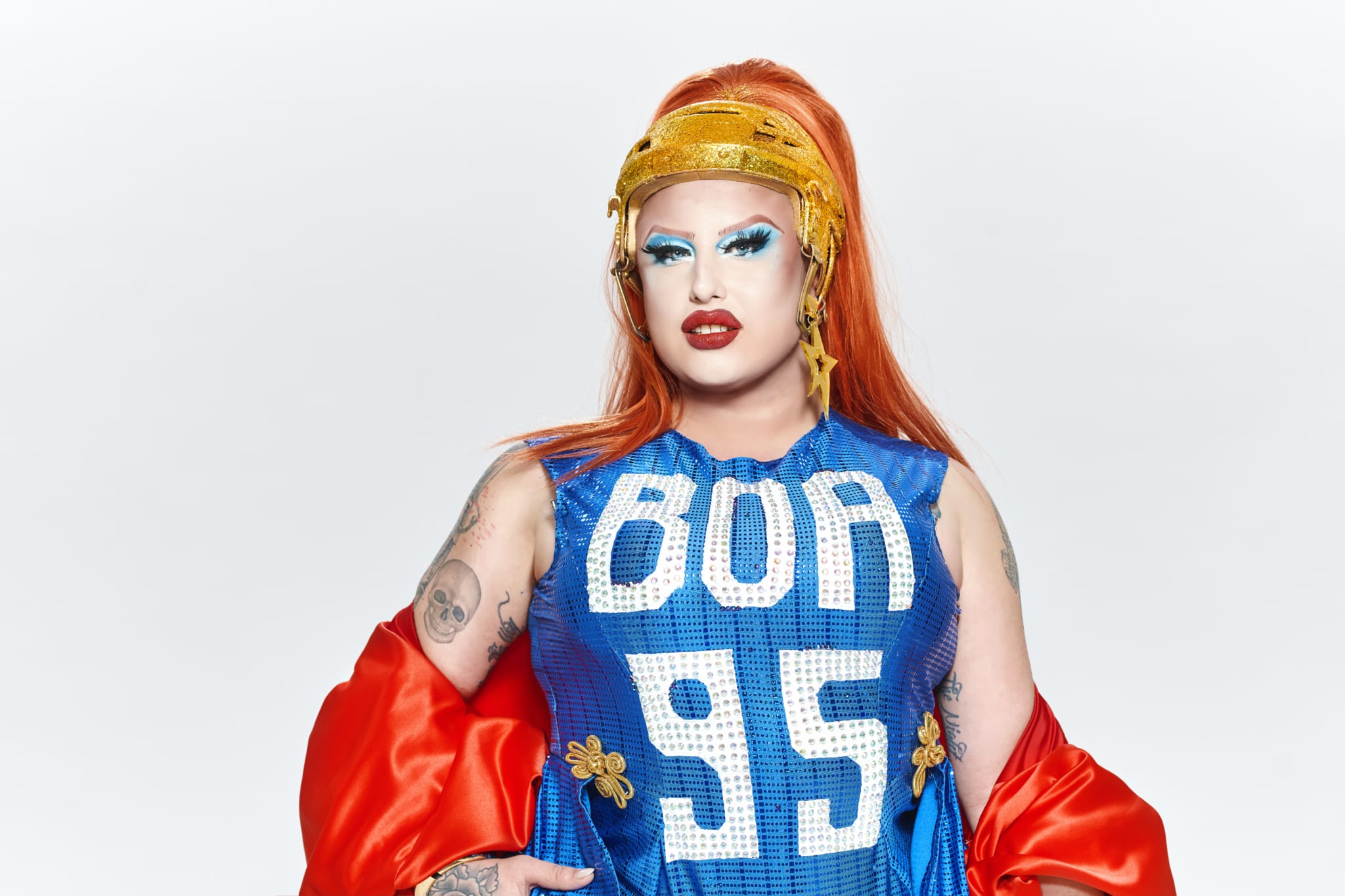The Bitch on Arrival has departed Canada’s Drag Race. After a memorable run on the show serving funny and personality, BOA, a.k.a Bitch on Arrival, becomes the sixth queen to leave the competition.
We spoke with BOA, who was serving hot pink fierce cowboy realness, about the origin of her name, her critics and finding love and support in the queer community.
What did you learn from your time on Canada’s Drag Race?
Advertisement
I learned that I get very in my head. It was a pressure cooker and we’re all stressed out. I learned to not do that because it messed me up a bit and that’s why I’m here now. I learned to just be authentically myself and not be afraid to be loud and proud, to be who I am. I definitely learned that I had to do that on the show.
You are one of the most memorable queens this season. Why do you think people relate so well with you?
I want to say humans relate to me, mostly because I, myself, am also a human. So when you see a human, you look at that human and say, “Oh, there’s another human, I relate to that human.” No, just joking. I don’t know! I’m just me, honestly. What you see is what you get. I’m not some fake bitch, I’m not some product of something. I am literally just BOA, and that’s it. I am authentically myself and if you like that, great! If you don’t, then go write it on Reddit.
Once and for all, why did you choose the name BOA?
I chose the name BOA because it’s actually my real last name. Growing up, everyone called me BOA. My peers, teachers, my principal—everybody called me BOA. When I started doing drag, I wasn’t able to figure out a drag name and I said, “You know what, let’s just call myself BOA.” Then, a girlfriend of mine said, “Yes! Bitch on Arrival!” That’s how she was born.
“I learned to just be authentically myself and not be afraid to be loud and proud.”
What’s your reaction to people criticizing your time on Drag Race and saying you just rely on your personality?
You know what, let me be real here. There are a lot of Drag Race favourites that relied on their personality. You know, the fan base is amazing, but there are some trolls. And I think that my weight comes into factor with that. If you look at Alyssa Edwards, Katya, Miss Vanjie, all of those queens are loved and appreciated and became so huge because of their personality. But I’m being judged differently. Like somebody will say “I’m so goddamn annoying,” which I’m really not!
On the show, you talked about being a victim of a violent hate crime. How did that conversation start?
We were talking about safety in the community because we did our Maxi challenge about bachelorettes. Rita was talking about how people have been grabbing her, pushing at her, putting fingers on her anus. And I thought it was a good opportunity to just speak out about what happened to me since I am on such a big platform. And I did that with the hopes of somebody watching that and if they’re going through it or know someone who’s going through it, they can know that they’re not alone and they can see that it can happen to anybody.
Why did you choose to share this particular experience?
When it happened, it happened publicly and the communities rally behind me. They took something so negative and helped me turn into a positive. Speaking out about my experience did volumes for people and for myself, and I knew that if it were to come on Canada’s Drag Race, I’m gonna have to talk about it and I’m gonna have to use that platform properly.
“Speaking out about my experience did volumes for people and for myself.”
You talked about being embraced by the queer community. Why is it important for LGBTQ2 people to support each other?
We are a community of so many different individuals and there are so many beautiful colours of this amazing rainbow that we live in. I think it’s so easy to be hateful, and when you are hateful, it becomes a habit. You see people who talk shit about people, who aren’t very nice.
One queen, in particular, used to really bad mouth me, and then I just outdid her. She said I wasn’t talented and bad. I got no support from her and her clique that she kept around, and that was okay because I had to focus on myself. The support system that I did have was really supportive and I loved them and I was able to slay that dragon girl, let me tell you! But the whole thing with support is, I really think we should be better as a community.
Looking back at your Drag Race journey, would you do something differently?
I wouldn’t go home.
If it can’t be you, which queen would you like to see win it all?
God, I love Jimbo. I love Priyanka. I love everybody. I’m gonna say Pri because I love Pri! She’s such a good friend of mine. We have coffee together every morning and I see how hard she works, and I see that she is really such a great example of a winner. She speaks out about injustice, like she did earlier this year about racism. I think she’s a very good candidate to be the winner.
What’s next for you?
Oh, I’m gonna take a nap and I’m gonna eat some lasagna. Once COVID-19 restrictions are lifted, I am going to be travelling, touring. Lots of photoshoots are coming out. I’m going to be doing some videos, so make sure you stay in the loop follow me on Instagram and Twitter! I also have a website now, which is crazy! I have merch on there so make sure you get your own merch!
One word to describe your time in Drag Race.
Cold.


 Why you can trust Xtra
Why you can trust Xtra


